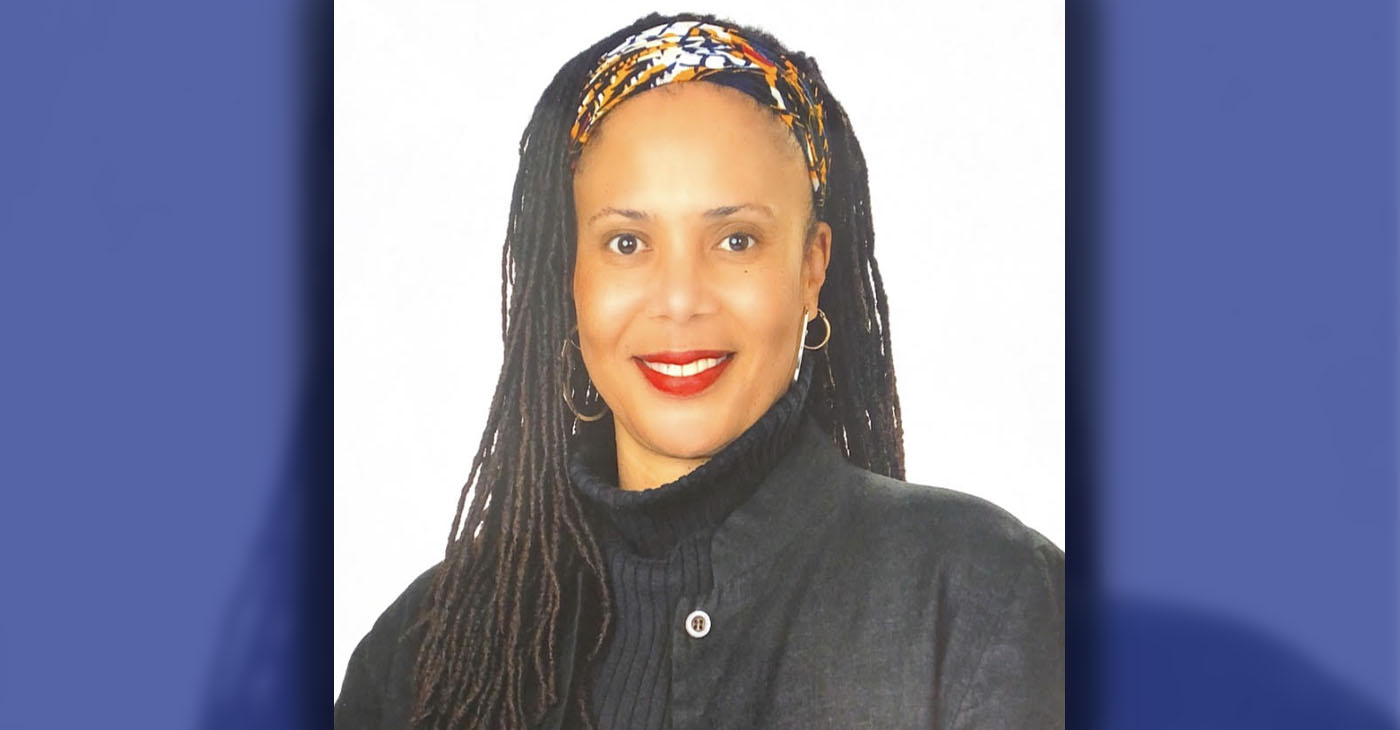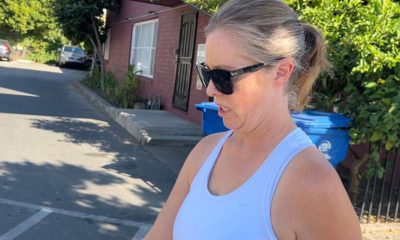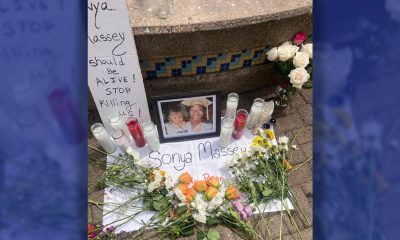Commentary
Opinion: V.P. Harris’s Soaring DNC Speech Was Inspired by Her Mom
The Democratic National Convention (DNC) had rhetorical flourishes that still resonate. If you’ve ever been underestimated, ignored, or made to feel invisible by others who assumed their superiority over you, Vice President Kamala Harris’s DNC acceptance speech was you. The message was clear: Kamala Harris is qualified and ready to lead America.

By Emil Guillermo
The Democratic National Convention (DNC) had rhetorical flourishes that still resonate.
If you’ve ever been underestimated, ignored, or made to feel invisible by others who assumed their superiority over you, Vice President Kamala Harris’s DNC acceptance speech was you.
The message was clear: Kamala Harris is qualified and ready to lead America.
Her dad taught her to be fearless but Harris said it was her mom who told her to never do anything “half-assed.”
Great advice for Harris as she engages in the run of her life, the fight for America’s democracy.
In her speech, Harris let people know exactly how she feels as a biracial woman; her love for America; and her passion for service.
“That here in this country, anything is possible, that nothing is out of reach in an America where we care for one another, look out for one another, and recognize that we have so much more in common than what separates us,” Harris said.
It was a unifying speech.
Harris, as a multiracial person in a diverse new America, also showed us how maybe we all should talk about race and ethnicity at a time in our history where minorities will soon be the majority.
So how should we talk about race?
You don’t billboard it. You let the obvious stand, and you show people who and what you are by your actions. Let them make all the assumptions they want. When you live your life authentically — true to who you are — others will see that our similarities are greater than our differences.
For Harris, it was the story of her mother, the late Shyamala Gopalan Harris.
“My mother was 19 when she crossed the world alone, traveling from India to California with an unshakeable dream to be the scientist to cure breast cancer,” Harris said. “When she finished school, she was supposed to return home to a traditional arranged marriage but as fate would have it, she met my father, Donald Harris, a student from Jamaica. They fell in love and got married, and that act of self-determination made my sister Maya and me.”
“My mother was a brilliant, five-foot-tall brown woman with an accent,” Harris said. “But my mother never lost her cool. She was tough, courageous, a trailblazer in the fight for women’s health.”
By her actions, she provided the lesson.
“She taught us to never complain about injustice, but do something about it,” she said. “That was my mother.”
Her mom’s story is the heart and soul of Harris. And it informed the real function of the night’s speech, her formal acceptance of her important new role: “And so on behalf of the people, on behalf of every American, regardless of party, race, gender, or the language a grandmother speaks, on behalf of my mother and everyone who has ever set out on their own unlikely journey on behalf of Americans like the people I grew up with, people who work hard, chase their dreams and look out for one another, on behalf of everyone whose story could only be written in the greatest nation on Earth, I accept your nomination.”
About the Author
Emil Guillermo is a journalist and commentator. See his mini-talkshow: YouTube.com/@emilamok1. Contact: www.amok.com
Activism
OPINION: Why the N-Word Should Be Eliminated from Schools: A Call to Educators, Parents and Students
The N-word’s use in schools, intentionally or otherwise, preserves a cycle of racial abuse, degradation, and discrimination which are violations to the dignity of African American students. Its usage perpetuates a legacy of hate and is a dignity violation that makes it a pressing issue for educators to address. Not addressing use of the N word in school contradicts the principles of equity and inclusion that educational institutions strive to uphold.

By Zetha A. Nobles,
The presence and rampant use of the N-word in educational settings poses significant challenges to the social-emotional learning (SEL) and psychological well-being of students and teachers.
The historical and contemporary usage of the N-word carries deep-seated racial connotations and trauma, making it imperative to address its impact in the school environment.
Here’s why the N-word should be eradicated from schools and its detrimental effects on SEL and psychological health.
Historical Context and Significance
The use of the N-word is considered a severe violation of dignity due to its deeply hurtful and dehumanizing nature. The N-word is historically rooted in a long and sordid history of racism, oppression and dehumanization.
It was and is used to dehumanize, degrade, demean and denigrate African American people. Its historical presence is marked by extreme violence and pernicious systemic oppression.
Despite the evolving societal appropriation and the exploitation of the word in hip hop music and other media forms, its controversial use has morphed or mutated into a word now used to signify friendship or endearment.
In schools its use is complex, representing camaraderie, being cool and defiant while consciously and unconsciously dehumanizing African American students and staff.
The N-word has a long history of being used as a tool of oppression and degradation against Black people. It was employed during periods of slavery, segregation, and ongoing racial discrimination to strip individuals of their humanity and reinforce systemic racism.
Its use is a painful reminder of this history and the ongoing struggle against racism. Its impact:
- Dehumanization: When the N-word is used, it reduces Black individuals to a derogatory stereotype, stripping away their identity and worth as human beings. It perpetuates the idea that certain groups are inferior and unworthy of respect and dignity.
- Impact on Self-Worth: Hearing or being called the N-word can have profound psychological and emotional impacts, leading to feelings of shame, anger, and diminished self-worth. It communicates to individuals that they are lesser or undeserving solely because of their race.
- Interpersonal Harm: The use of the N-word in interpersonal interactions conveys disrespect, hostility, and a lack of regard for the feelings and dignity of others. It undermines efforts to build inclusive and respectful relationships.
- Symbol of Structural Injustice: The N-word symbolizes larger societal injustices and inequalities. Its continued use reflects ongoing racial prejudice and discrimination, perpetuating harmful attitudes and behaviors.
Given these reasons, using the N-word is not just a matter of inappropriate language; it represents a significant violation of human dignity and reinforces harmful racial stereotypes and hierarchies. It is crucial to reject and actively challenge the use of this word to promote equality, respect, and dignity for all individuals.
In schools, the word retains its harmful and damaging impact and remains a powerful symbol of racial animosity. The N-word’s use in schools, intentionally or otherwise, preserves a cycle of racial abuse, degradation, and discrimination which are violations to the dignity of African American students. Its usage perpetuates a legacy of hate and is a dignity violation that makes it a pressing issue for educators to address. Not addressing use of the N word in school contradicts the principles of equity and inclusion that educational institutions strive to uphold.
Impact on Social-Emotional Learning (SEL)
Social-emotional learning is crucial for students’ development as it encompasses the skills needed to manage emotions, establish positive relationships, and make responsible decisions. The use of the N-word in schools disrupts this process in several key and critical ways:
- Emotional Trauma: The N-word is a trigger for emotional pain, particularly for African American students and teachers. It can evoke feelings of anger, sadness, shame and humiliation, which hinder the ability to engage fully in the learning process.
- Hostile Learning Environment: A safe and supportive learning environment is essential for effective SEL. The use of the N-word creates a hostile and unsafe atmosphere, leading to increased anxiety, disrespect, and stress among students and teachers.
- Relationship Building: One of the goals of SEL is to foster positive relationships. The use of derogatory language such as the N-word fosters division and mistrust among students and staff.
Psychological Impact on Students and Teachers
The psychological effects of the N-word on students and teachers are profound and far-reaching. For students, especially those of African American descent, the word can lead to feelings of inferiority and exclusion. This not only affects their academic performance but also their self-esteem and mental health. Studies have shown that exposure to racial slurs can increase levels of depression, anxiety, and other mental health issues.
For teachers, addressing the use of the N-word in the classroom is a significant challenge. It places an emotional burden on them, particularly for teachers of color who may feel personally targeted. The stress of managing such situations can lead to burnout and affect their ability to provide a supportive learning environment.
Strategies for Eliminating the N-Word from Schools
To effectively eliminate the N-word from schools, a comprehensive approach is necessary. Here are some strategies:
- Clear Policies and Consequences: Schools must implement and enforce policies that explicitly prohibit the use of the N-word and other derogatory language. Clear consequences for violations should be established and communicated to all members of the school community.
- Cultural Competency Training: Providing cultural competency and anti-racism training for teachers, staff, and students can foster a more inclusive and respectful environment. This training should include the historical context of the N-word and its impact on individuals and communities as well as alternative language.
- Support Systems: Schools should offer culturally congruent support systems, such as counseling and peer support groups, for students and teachers affected by the use of the N-word. These resources can help individuals process their experiences, mitigate psychological harm and co-create a culture of dignity.
- Community Engagement: Engaging the broader school community, including parents and local organizations, in dialogue about the impact of the N-word can reinforce the school’s commitment to creating a respectful and inclusive environment.
In addition to the moral and ethical arguments against the use of the N-word, there are also legal and policy considerations that support its prohibition in schools. Many school districts have anti-bullying and anti-discrimination policies that explicitly prohibit the use of derogatory language, including racial slurs. The use of the N-word in schools can lead to disciplinary actions and legal consequences for both students and staff who violate these policies.
Furthermore, federal laws such as Title VI of the Civil Rights Act of 1964 prohibit discrimination on the basis of race, color, or national origin in programs and activities receiving federal financial assistance. Schools that fail to address the use of the N-word and other forms of racial harassment may be in violation of these laws, potentially resulting in investigations and penalties from the U.S. Department of Education’s Office for Civil Rights.
Addressing the N-word in educational settings is not just about prohibiting a word; it is about dismantling a symbol of hate and fostering an environment where all students and teachers can thrive.
Activism
Oakland Post: Week of September 11 -17, 2024
The printed Weekly Edition of the Oakland Post: Week of September 11 – 17, 2024

To enlarge your view of this issue, use the slider, magnifying glass icon or full page icon in the lower right corner of the browser window. ![]()
California Black Media
Opinion: Why Californians Must Reject Proposition 36 This November
In November, voters have a crucial opportunity to reject Proposition 36, a misguided effort backed by major law enforcement associations and some players in the corporate retail lobby that will make our communities less safe. Although the authors of the proposition have euphemistically labeled it “The Homelessness, Drug Addiction, and Theft Reduction Act,” Prop 36 will increase punishments for people experiencing homelessness and substance use disorders without providing any funding for treatment or housing. Prop 36, like policies similar to it in the past that have harmed Black people, will affect a disproportionate number of Black disabled people.

By Eric Harris, Special to California Black Media Partners
In November, voters have a crucial opportunity to reject Proposition 36, a misguided effort backed by major law enforcement associations and some players in the corporate retail lobby that will make our communities less safe.
Although the authors of the proposition have euphemistically labeled it “The Homelessness, Drug Addiction, and Theft Reduction Act,” Prop 36 will increase punishments for people experiencing homelessness and substance use disorders without providing any funding for treatment or housing. Prop 36, like policies similar to it in the past that have harmed Black people, will affect a disproportionate number of Black disabled people.
Over the past decade, Californians have voted to reduce our prison population. To achieve that goal, in 2014, we passed Proposition 47, which reclassified many low-level nonviolent offenses, such as drug possession and property crimes, from felonies to misdemeanors. This was an important step to reform our criminal legal system, leading to an overall drop in crime statewide and decreased rates of recidivism. In contrast, Prop 36 would impose longer sentences and harsher punishments for theft and drug-related offenses. Rather than investing in meaningful solutions, Prop 36 relies on expensive band-aids such as “treatment-mandated felonies” for repeated drug possession.
Nationwide, people with disabilities are disproportionately represented in our prison system at staggering rates, with over 40% of people in state prisons having a disability, compared to only 15% of people in the general population. In California, 1 in 3 people in prison have a diagnosed mental illness. This overrepresentation reflects decades of policies that prioritize incarceration over housing affordability and community-based alternatives, especially in Black and Brown communities, and among people experiencing homelessness.
By increasing the number of people experiencing incarceration, Prop 36 will exacerbate the number of Californians with disabilities in our prison system, while also disabling new people who enter the system. Beyond being overrepresented, people with disabilities experience inhumane treatment in prison and jail where they are often denied proper accommodations, medical care, and services. Further, prison and jail conditions often exacerbate people’s existing conditions, meaning people are at risk for leaving incarceration with disabilities they did not have when they entered the system.
Moreover, while special interests have framed Prop 36 as an attempt to address drug use, its mandated treatment model will lead to more people with disabilities facing incarceration, while their substance use disorders remain untreated. Experts agree that mandating drug treatment for individuals convicted of a drug-related offense does not effectively reduce drug use. Further, Prop 36 does not offer any funding for substance use treatment of any kind, let alone evidence-based practices. This will perpetuate the existing system in which people with substance use disorders end up incarcerated, instead of having access to community-based treatment.
Prop 36 will also worsen the socioeconomic conditions at the root of the problems it claims to address. A felony conviction makes it far more difficult to find employment and stable housing post-incarceration, which has a compounding impact for people with disabilities who already are more likely to be facing housing insecurity and unemployment.
Californians should oppose any measures that double down on punishment and incarceration. Instead of Prop 36, we need policies that invest in community-driven solutions for healthier communities.
About the Author
Eric Harris is the Associate Executive Director of External Affairs at Disability Rights California.
-

 Bay Area4 weeks ago
Bay Area4 weeks agoFormer Black Panther Leader, Elaine Brown, Champions Affordable Housing with New Complex in West Oakland
-

 Activism4 weeks ago
Activism4 weeks agoIN MEMORIAM: Dr. Michael Eric Dyson Eulogizes ‘The Father of Black Studies’ in San Francisco
-

 Alameda County4 weeks ago
Alameda County4 weeks agoD.A. Pamela Price Charges Alameda Swim Team President with Multiple Counts of Embezzlement
-

 Arts and Culture4 weeks ago
Arts and Culture4 weeks agoTriumphant Return of Oakland Native Richard Curtis IV: Inspiring the Next Generation on Missy Elliott’s ‘Out of This World’ Tour
-

 Community4 weeks ago
Community4 weeks agoOakland Rallies for Sonya Massey, Police Slaying Victim
-

 California Black Media4 weeks ago
California Black Media4 weeks agoSen. Bradford Responds to Deputy-Involved Killing of Unarmed Black Woman
-

 Bay Area4 weeks ago
Bay Area4 weeks agoThe Inclusivity Project and Oakland African American Chamber of Commerce Host “Capital Summit” Benefitting 150 Local Businesses
-

 Arts and Culture4 weeks ago
Arts and Culture4 weeks agoOakland’s Black-Eyed Pea Festival Celebrates Black History in Music, Food and Art




















































